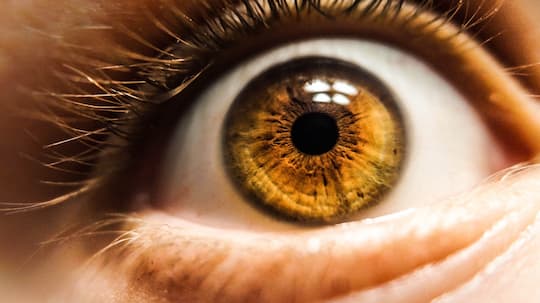Depressed eyes are difficult if not impossible to spot, but this eye colour is linked to a seasonal form of depression.
Depression cannot be spotted in the eyes alone, however eye colour may provide certain clues.
That is because people with brown eyes are more likely to get depressed with the seasons, mostly in the winter, research finds.
Women with brown eyes are particularly at risk as women are 40 percent more likely to experience the condition than men.
Those with blue eyes, though, seem to be have a level of protection against what is known as Seasonally Affected Disorder (SAD).
People with SAD — a form of depression — generally start to feel down from around fall and the symptoms continue through the winter months.
SAD has also been linked to weight gain from a craving for carbs.
The study’s authors write:
“Individuals with blue eyes appear to have a degree of resilience to SAD.
This may be taken as suggestive that the blue eye mutation was selected as a protective factor from SAD as sub-populations of humans migrated to northern latitudes.”
Depressed eyes
In other words, people with blue eyes historically tended to live in the North so their genetic make-up is more resilient to the cold, dark winters.
Professor Lance Workman, study co-author, said:
“We know that light entering the brain causes a decrease in levels of melatonin.
As blue eyes allow more light into the brain, it may be that this leads to a greater reduction in melatonin during the day and this is why people with lighter eyes are less prone to SAD.”
The study’s results came from a survey of 175 students in Wales and Cyprus.
The researchers found that around 8 percent of people in their study had a chronic version of SAD, while 21 percent had a less serious version of it.
The study was presented at the annual conference of the British Psychological Society in Nottingham, United Kingdom (Workman et al., 2018).

